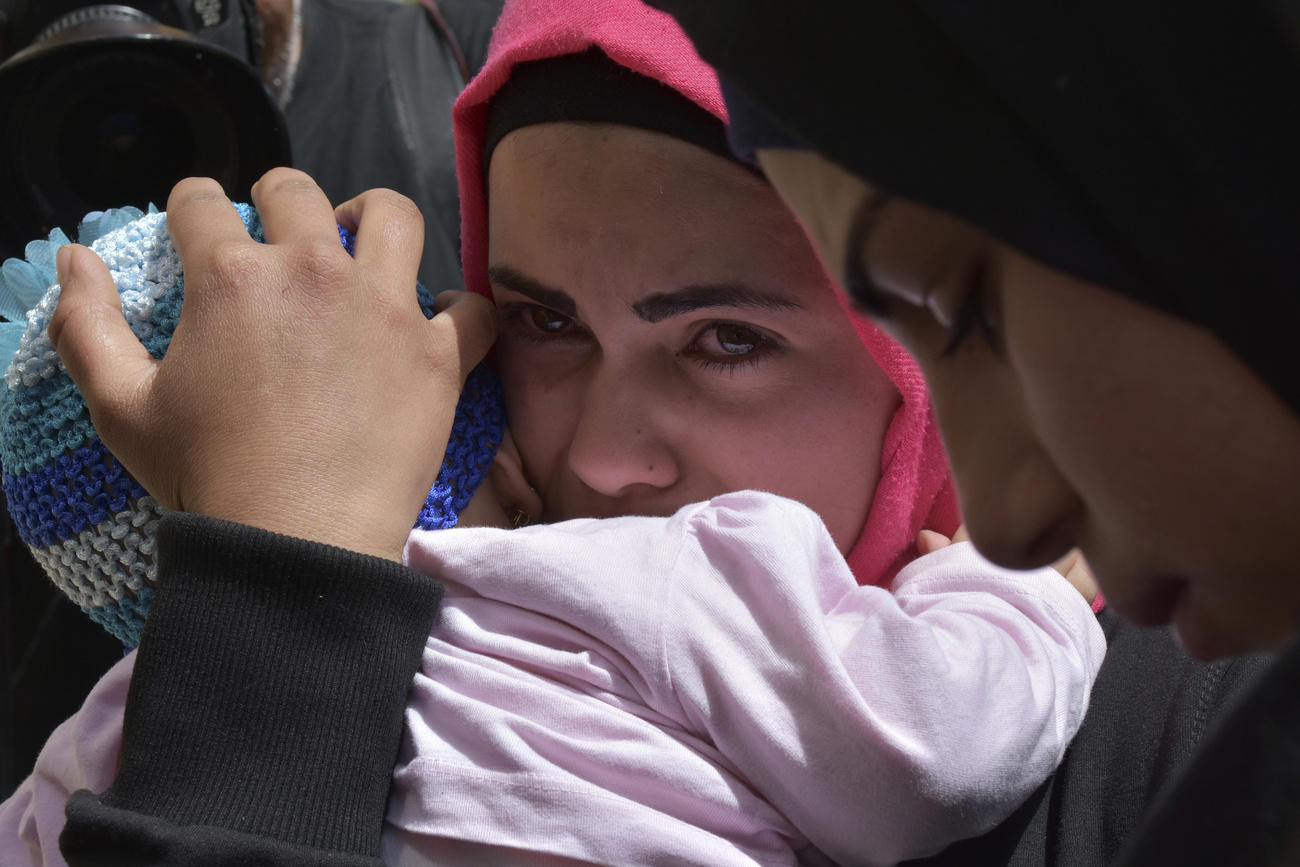
The story behind Swiss Solidarity

Launched on Thursday, the humanitarian charity Swiss Solidarity has devoted its 250th fundraising campaignExternal link to women, who are often double victims in the event of war or disaster. This is how the organisation got its start.
In its 73 years of existence, the humanitarian arm of the Swiss Broadcasting Corporation (that includes swissinfo.ch) has raised CHF1.8 billion (1.81 billion) for those in need. It all began in 1946 in the city of Lausanne on Lake Geneva, on what was then called Radio Sottens, the public radio station of French-speaking Switzerland (now RTS). Host Roger Nordmann and comedian Jack Rollan launched “Chaîne du Bonheur” or Swiss Solidarity, a programme designed to collect donations for humanitarian causes.
Those living in a refugee camp in Somalia, in a gang-controlled neighbourhood in El Salvador or under bombardment in Yemen are often forgotten by people living in the Western world. And living in those places as a woman means being forgotten a second time, because most systems and cultures are focused on the needs of men. For its 250th fundraising campaign, which runs from September 12-19, Swiss Solidarity has decided to help these women in distress, in both such forgotten crises and in Switzerland, where a third of the donations collected will be distributed.
At the time, much of Europe was in ruins after the Second World War. The establishment of a Swiss “culture of giving” was partly due to a sentiment of privilege from having escaped the war’s worst carnage. As early as 1944, Switzerland opened its arms to refugees, after having turned them away at the beginning of the war. This is what historian François Vallotton calls Switzerland’s “humanitarian catch-up”.
The first donations were made in kind. The Lausanne-based studio received crates of sausages, mattresses, shoes, toys and even cigars. The Swiss Red Cross was chosen as the first partner to distribute the donations. The idea then spread to other linguistic regions. “Glückskette” started in Basel in 1947 and “La buona azione”, which later became “Catena della Solidarietà”, was born in Lugano in 1948.
Regular appeals via radio broadcasts stopped in the 1950s, but Swiss Solidarity survived and grew. In 1983, it was set up as a separate foundation, while remaining closely linked to Swiss public service broadcasting. Today, Swiss Solidarity’s fundraising appeals are systematically relayed by public media channels, but also by private broadcasters.
As in its early days, Swiss Solidarity distributes the donations it collects to humanitarian and development NGOs. There are currently 26 of them and the list of partners is regularly reviewed. The supported projects generally focus on long-term actions, such as post-disaster reconstruction, in Switzerland and around the world.
As the distribution of funds is spread over several years, the foundation puts money in very low-risk investments. The income from those investments has almost always covered operating expenses. Over its 36 years of existence as a foundation, it has even made a cumulative profit of nearly CHF4 million.
In 73 years, Swiss Solidarity has raised CHF1.8 billion, making it Switzerland’s largest donor of humanitarian aid. It now also collaborates with similar organisations abroad in the Emergency Appeals AllianceExternal link, which is mainly used to share experiences and best practices.

In compliance with the JTI standards
More: SWI swissinfo.ch certified by the Journalism Trust Initiative





























You can find an overview of ongoing debates with our journalists here . Please join us!
If you want to start a conversation about a topic raised in this article or want to report factual errors, email us at english@swissinfo.ch.